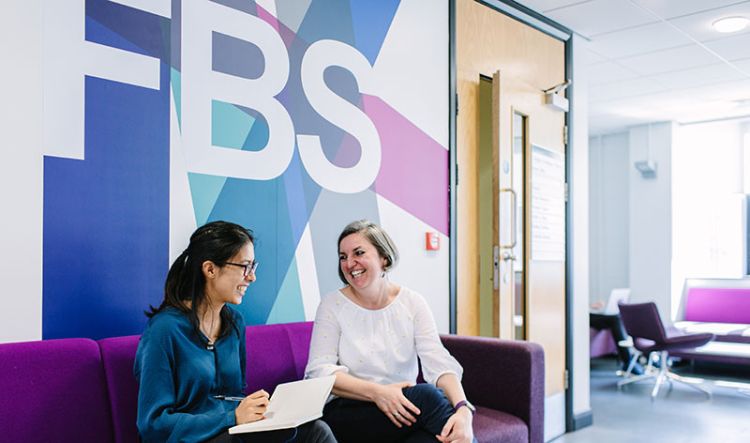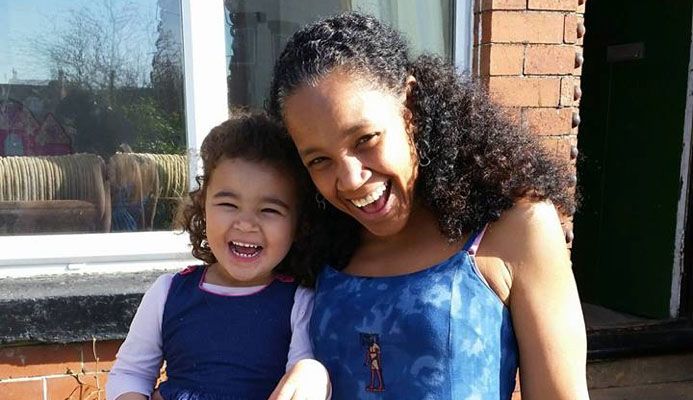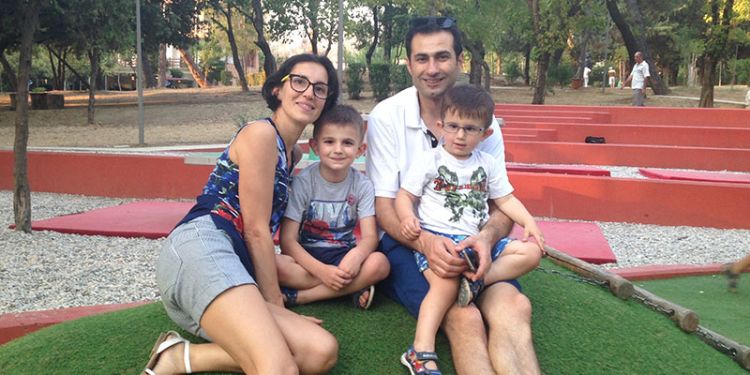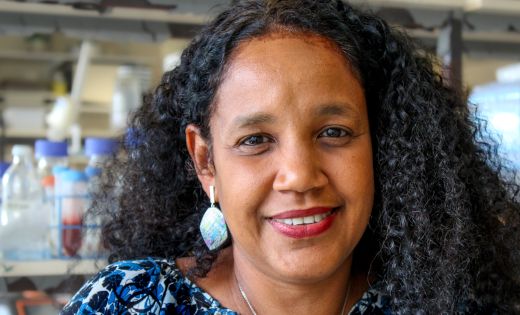Athena SWAN
Case Studies
Returning to work
In May 2024, Dr Alison Divine (Lecturer in Sport & Exercise Psychology) returned to the Faculty from maternity leave and was able to benefit from the faculty's return-to-work Fund.
She said "accessing the faculty's return to work fund was easy. HR sent me the form and I spoke to the Athena Swan Lead about it. I wrote a short paragraph about how the fund would help me attend at a conference I had already been accepted at.”
I wouldn’t have been able to attend the conference without the return to work fund. I gained a new research collaboration to support my grant, and I met with top researchers in my field.
Career progress in Technical Operations
Jennie Hibbard first joined the Faculty as a Research Technician back in 1995. Since then, she has progressed to Lab Area Coordinator and now to Lead Technician. These roles provide the opportunity and pathway to move from a research role to a managerial role.
Reflecting on her career to date, Jennie said "a big support for me was being given time to access other opportunities that were outside of my role. I was in a research lab which was very inclusive, where technicians were held in the same regard as every other member of the team."
"Over the years I did so many different things, such as organising technical staff away days, green impact, sustainability, Athena Swan submissions, Fire Warden, First Aider, involvement in writing H&S policies & being an SRDS reviewer before I became a manager. Being allowed to explore things outside of my day-to-day job gave me different skills and an understanding of how the faculty works. Having that experience then gave me more confidence in applying for roles because I could see a bigger picture."
Jennie also personally benefitted from joining the Aurora development programme in 2023, supported by her Line Manager.
I've always been well supported by my line managers; I really appreciated being given a place on Aurora to develop my leadership skills, which was a significant financial and time commitment.
After completing his Bachelor's degree in Biology at Leeds, Lewis Adams became a Research Technician in FBS, before progressing on to Senior Research Technician for the BioScreening Technology Group in 2022. His work develops affimer reagents with local, national and international end users.
Reflecting on his career progression and support at Leeds, Lewis said "I was identified and encouraged by managers to apply for promotion, which made me feel valued.”
Managers were supportive and offered feedback on my application before I submitted it. The Lead Technicians also offer to be part of the Technical Staff Review & Development Scheme for career development.
Lewis is also an active member of the Technician Commitment, which aims to ensure visibility, recognition, career development and sustainability for technicians working in higher education and research. "The Technician Commitment steering group and working group also work to develop career pathways and opportunities,” added Lewis.
Flexible working
Rebecca works as a members of the faculty's Business Administration Team. Support from her Line Manager and the ease of the process to request flexible working has meant she has been able to manage the changing dynamics of family life.
Reflecting on the changes and impact, Rebecca said, "once my youngest started school nursery and my eldest was in year 1, I requested to change my working pattern, so that it would allow me to be able to drop them off at school every day and pick them up most days. In addition to this, I requested that during the school holidays, I could work my hours over 3 full days.
“This flexibility and support has had a huge impact. On the most practical level, it means that I don’t need to manage the logistics of school runs and rely on other people for help. This is something I juggled when my eldest first started school and it can be very stressful. As anyone who is dealing with it themselves will know, it’s like a house of cards, as soon as someone isn’t available, it all comes tumbling down!”
Most importantly, being able to be at the school gate every day has been the biggest benefit, along with the time I am able to spend with my children as they grow up.
Breaking down barriers
Professor Yoselin Benitez-Alfonso, originally from Cuba, joined Leeds as an Academic Fellow in 2013 and is now celebrating becoming the second person from Leeds to earn a senior promotion after joining the ground-breaking 100 Black Women Professors NOW! programme.
Her research aims to reveal the molecular factors regulating plant development and response to the environment, which can be applied in the development of strategies that underpin crop improvement, biomaterial development and enhanced agricultural sustainability.
The pioneering systemic change programme aims to break down barriers by increasing the number of Black women in the academic pipeline. When it was launched in 2021, only 35 of more than 23,000 UK professors were Black women. Yoselin is number 62.
The new Professor of Interdisciplinary Plant Science, from the School of Biology, said: “This is amazing – it means so much to me. When I joined the University, I was the only Black person in my department. Now we have staff and students from across the globe.”
It’s really rewarding when our students say how they can engage more with me and how I’ve become something of a role model. It’s incredible I’ve been able to inspire them in their future careers.
The interdisciplinary nature of her research has seen her collaborate with the School of Physics and Astronomy, the Bragg Centre for Materials Research and the Global Food and Environment Institute (GFEI) at Leeds.
Shared parental leave

Dr Julie Aspden is an Associate Professor in RNA Biology, exploring regulation of mRNA translation, non-coding RNA function and the role of specific RNA-protein complexes. Julie and her husband used shared parental leave to support both their family and continuing research. "We took the leave in a staggered pattern, each taking it in turn to take a block of weeks at a time, then returning to work whilst the other took a block”.
By asking lots of questions, we were able to come up with a plan that worked for us personally but also ensured that our research groups continued to be supported.
The faculty also funded a Postdoc who was able to help run her group whilst Julie was on leave. She added "he was able to help mentor students and did the work that he could do, which lightened my load in some areas when I returned. This was also a good career opportunity for the postdoc."
Postgraduate wellbeing support
Wellbeing for all staff and students is an ongoing priority for the faculty and key actions are planned as part of Athena Swan activity to ensure positive changes are made.
Georgina Smith is a Postgraduate Researcher and has reflected on their own experience of accessing support. They said "the biggest impact seeking support has had on me is it reduces the stress I'm feeling regarding any specific events and gives me confidence that someone else will go 'to bat' on my behalf. Benefits include allowances and extensions to deadlines or being able to take time out of my studies.
For example, I was easily able to take two weeks off at the discretion of my supervisor and the graduate school which was much appreciated, and these aspects give me confidence as I know there is always that cushion available, should I need it."
Postdoc-Postgrad training
Dr Emma Wroblewski is a Research Fellow in VLP Vaccine Character in the School of Molecular & Cellular Biology. Emma has been an active member of the Athena Swan Self-Assessment Team and has been instrumental in creating a mentoring scheme between Postdocs and Postgraduate Researchers.
Reflecting on the scheme she said "this is something I would’ve loved to have had as a PhD student and it’s great to be able to give support through what can be a stressful and intense time. Nothing really prepares you for a PhD but as PDRAs we’re near-peers who can give experience-based advice on being a PhD student (and at Leeds - for me anyway), dealing with supervisors and what it’s like to be a post-doc. I like to think our sessions are places for honest discussions about anything and as long as the whole group is comfortable – no topic is off limits."
As a mentor, Emma is able to guide and advise more junior researchers, but has also experienced benefits for herself. "Participating in the mentoring scheme has enhanced my confidence in my mentoring and leadership skills. Before this I hadn’t done any formal mentoring and didn’t really feel that I, as a PDRA, was the right person to give advice in an academic setting. However, I was a PhD student, and I understand the pressures and challenges that go along with that.”
This scheme has given me the opportunity to see that skills I’ve picked up as a PhD student/PDRA are useful to others – even outside of a science/lab setting.
2019 case studies
Post-doc schemes to support your progression

After studying her undergraduate degree in Molecular Biology at Cardiff University, Rebecca came to the University of Leeds on the Wellcome Trust PhD scheme for The Molecular Basis of Biological Mechanisms.
Rebecca: "During my first year, in the rotation projects, I used electron microscopy in my research for the first time. I thought there was something very compelling about being able to directly visualise the protein assemblies I was studying."
Rebecca went on to complete her PhD with Professor Neil Ranson, Dr Eric Hewitt and Professor Sheena Radford using transmission electron microscopy (TEM) to study the interactions between macromolecular complexes and membranes. During her PhD, Rebecca was able to take advantage of development opportunities available to PhD students at Leeds, such as a three-month science policy internship at the Academy of Medical Sciences.
During Rebecca’s PhD, electron microscopy underwent a ‘revolution’ thanks to developments in microscope hardware and new image processing software.
"I was fortunate in my PhD project to gain a broad range of experience with TEMs", she says.
The Faculty of Biological Sciences is a great place to work- my supervisors and collaborators have always been very supportive, and schemes such as the post-doc mentoring scheme have allowed me to take a step back and reflect on what skills I needed to progress to the next career stage.
- Rebecca
This meant when the University of Leeds and Wellcome Trust invested £16.5 million in establishing a new centre for structural biology at Leeds in 2015, Rebecca was ideally placed at the end of her PhD to take up the role of Cryo-electron Microscopy Support Scientist. "In this role I helped establish the Titan Krios microscopes at Leeds and support users from across the University to use electron microscopy in their research."
In summer 2017, Rebecca became the Senior Cryo-electron Microscopy Support Scientist and Facility Manager at the Astbury BioStructure Laboratory electron microscopy facility.
"I now oversee the day-to-day running of the electron microscopy facility and our five microscopes. I get involved with a range of research projects, get a little bit geeky about microscopes and learning the best ways to get the most out of them and liaise with users from other universities and industry - there is a wonderful variety of work in the role."
Flexibility for family arrangements
Amy Barker: "I started working in FBS in 2008 as a Laboratory Technician running analytical biophysical equipment and training Facility users. I now work as a Research Technician for Professor Peter Stockley, carrying out lab research projects, admin tasks and being a key member of the group.
"I am also currently studying part-time for a PhD looking at novel anti-viral approaches towards (+)ssRNA viruses and hoping to submit at the end of 2017. "
In 2016, Amy took six months' maternity leave.
She says: "My research role was covered full-time allowing me to focus my full attention on my new baby. I had a phased return to work using annual leave, which was essential for transitioning my five-month-old into childcare and switching my brain back on!
"My PI independently continued funding full-time for a technician to work alongside me for 10 months. This was invaluable and allowed me to pick up my PhD thesis again (after taking a 12-month extension)."
The University provides great flexibility with working hours and vital protocols for taking carers leave at the drop of a hat.
- Amy
Amy adds: "My PI, colleagues, friends and family have been very supportive and now I couldn't imagine working anywhere else."
Support through pregnancy to University nursery

Yoselin is a Lecturer in the School of Biology. She specializes in Plant Sciences, with a focus in the regulation of intercellular communication and plant development.
Her research has been published in prestigious journals including Developmental Cell, PNAS and The Plant Cell. Yoselin has worked in the Faculty since 2013, starting as Academic Fellow. She was born in Cuba but studied her degree at the University of Cordoba, Spain and as a postdoctoral researcher she worked at Cold Spring Harbor Laboratory in New York and at the John Innes Centre in Norwich, UK.
Besides research, Yoselin holds several administrative roles including Faculty Equality and Diversity Coordinator, Deputy Admission Officer and EPSRC Associate Peer Review College member. Yoselin is also a Fellow of the Higher Education Academy.
"My partner and I learned that I was pregnant four months after I started my Academic Fellow position at the University of Leeds," says Yoselin.
"This was a very stressful time as you can imagine and my partner was working in Norwich, thus I was basically on my own. Thankfully, he decided to leave his job and help when my daughter Jessica was born. That also meant that I was the only earner in the family, therefore, I've had a short period of maternity leave lasting only four months.
"I feel fortunate that Jessica got a place at the University nursery really early, thus I could come back to work while still being able to visit her several times a day for breastfeeding. I had good support at home from my partner and in the Faculty from some of my colleagues, but it was still really difficult to combine motherhood demands with the grant writing, lecturing, tutoring and leading a research lab for the first time."
Now I feel proud that I could manage all these responsibilities and at the same time get funding for my research and undertake other administrative roles at School and Faculty level. I must have done something right as I passed my probation a year earlier than expected and became a Lecturer in Plant Sciences.
- Yoselin
"Jessica is now three years old and, although it is still complicated to have a good work-life balance, I feel I am settling nicely into my very different roles," adds Yoselin.
"My partner is also back at work - so no more nice dinners and legs up in the chair for me when I'm home!"
Working as a family at the University

In August 2016, Professor Elton Zeqiraj and Dr Beatrice Maria Filippi began their current posts as University Academic Fellows in the Faculty of Biological Sciences. Before relocating to Leeds, they spent six years as postdoctoral fellows in Toronto.
The 250 Great Minds initiative by the University of Leeds gave them the chance to start independent careers in the same place at the same time.
Of their academic experiences so far, they say: "Journeying from a postdoctoral post to an independent academic is very tricky because there are many twist and turns along the way, all of which need to converge with a suitable position being open at the right time. In that respect, we were quite lucky to have been offered same level faculty positions for both."
Beatrice and Elton have two boys, who are now four and two years old, and have learnt that being a working couple means sharing responsibilities at home.
As parents of young children, they recognise that it can sometimes be hard to combine work with childcare and other responsibilities, adding: "For us the most important thing is to respect each other’s work and support each other."
As a parent, you feel guilty if you don’t spend enough time with your kids, but as an academic you always feel that you don’t have enough time to complete your work.
Elton & Beatrice
"Our biggest revelation has been that the two are not mutually exclusive, and after finding the right balance between responsibilities at home and at work, the resulting experience is very harmonious and satisfying.
"Here in Leeds we found the right work environment and support from colleagues that helped us find that balance. The facilities at the University have helped too. Having a nursery on campus was a great relief for us and has practical benefits."
Taking paternity leave
Dr Edwards started as a University Research Fellow in 2005, became a lecturer in 2010, and was promoted to Associate Professor in 2013.
He was Deputy Director of the Astbury Centre for Structural Molecular Biology and Director of Research for the School of Molecular and Cellular Biology.
In 2015, Ed took 12 weeks of paternity leave following the birth of daughter Avery.
"The School was very supportive of my paternity leave and we had everything planned to organize teaching etc whilst I was away," he said.
"However, all that planning came to naught when Avery arrived eight weeks early. Essentially at zero notice, all of my colleagues were brilliant in stepping in to cover teaching and admin that had been moved forward to accommodate the planned birth date.
"Avery was fine, and came home in a few days, but there was lots to do, and I had to learn to feed her through a nose tube!"
Avery is now a bouncing beautiful two-year-old...When a baby is breast feeding, it is possible for the father to feel somewhat superfluous! I spent a great 12 weeks looking after Avery at home, really getting to know her and integrating her into the family as we have an older daughter as well.
Dr Edwards






